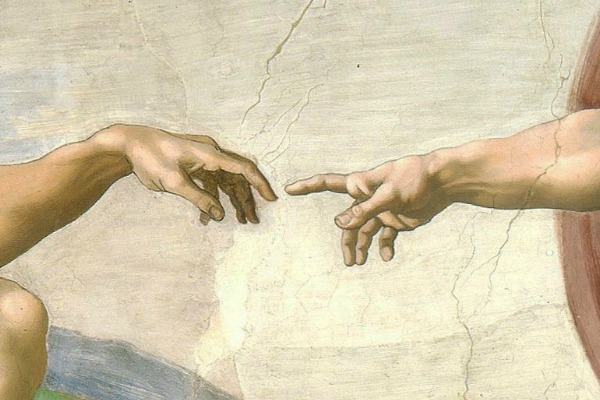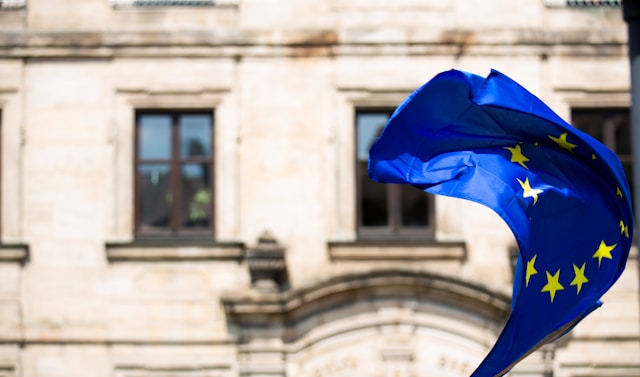
30 May 2025
Kenan Camurcu
For secular and Islamist Turkism, which views not only Kurds but also Kurdishness as a problem and denies the issues faced by this people, it naturally means nothing. But if Turkey were a developed society composed of empathetic individuals, they would have been upset, for instance, when a contestant from Şırnak in the 2022 Turkish MasterChef competition apologized for his Turkish accent. I, for one, was devastated to witness the Şırnak boy's bowed head, having myself been detained in Norşin in 1983 for reacting to the gendarmerie's ill-treatment of ordinary Kurds while enthusiastically pursuing religious studies during my Islamist phase. Thankfully, hearing compensatory words from the jury provided some relief. However, in the later days of the competition, the child succumbed to a Michael Jackson complex, doing everything imaginable to his appearance to shed the need for an apology and conform to the acceptable, dominant image. I wish someone had told him that alienation from one's true self for acceptance is toxic.
A Personal Encounter with State Authority
Turkey's political history is certainly replete with a copious amount of shocking and unbelievable examples. Yet, reasonable people have surely experienced painful situations in their personal histories. Mine occurred in 1983, at the beginning of my unfortunate Islamist period, when I went to Norşin to study religious sciences at the madrasah of Molla Sadreddin (Yüksel), whom I admired. The madrasah, in reality, was the village mosque. During the day, prayers were performed, madrasah curriculum books were read, and at night, beds were laid out for sleeping. The students were called "faqa," a slightly Turkified nickname derived from "faqih" (jurisprudent).
One evening, while drinking tea at the coffee house where we fakas usually gathered, I saw a gendarmerie sergeant major, accompanied by a group of armed soldiers, pushing through the crowd of people sitting on stools and chatting. One can imagine that his deliberate act of barging through them, forcing everyone to stand up, even though he could have passed by, was a clear display of authority. Everyone, old and young, leaped to their feet in fear. When they stood over me, I remained seated, confident in being a Turk from the far West, from İzmit. In my city, seeing armed gendarmerie trying to control people in public and performing rituals of obedience to them was not part of our lives. I also, I suppose, had an inner complacency from belonging to the dominant nation.
The hulking, fat sergeant major stood over me, shouting at the top of his lungs for me to stand up. I realized things were going to turn ugly, but still, to show my defiance, I slowly rose. He must have worried that my disobedience to authority would spread to the locals, so he had me roughly apprehended and taken to the police station. After an investigation, phone calls back and forth, and the intervention of Sadreddin Yüksel's brother-in-law, the late Sheikh Nurettin, as an intercessor, I was released. But on one condition: I had to leave Norşin. I was, in essence, exiled. It was a de facto situation created by an armed man. At that point, constitutional rights, citizenship, freedom of travel, and such were useless. When I tried to mention them, I was met with a terrifying glare, leaving me with no options. It was the era of the "gendarmerie buttstock," long before the "rural police" had any charm. It was an era similar to the famous saying, "Omar's whip is more terrifying than Hajjaj's sword" (Ibn Khallikan, Wafayat al-A'yan, 3/14).
The Diverging Paths of Kurdish Identity
However, obsessed with becoming a mullah by studying in Kurdish madrasahs, I chose to go from Tatvan to Batman, on the advice of local Islamists, instead of returning to my city. This was under the guidance of Hüseyin Velioğlu, one of the first leaders of Kurdish Islamism. His successor, Edip Gümüş, who took over after Velioğlu's assassination, was also with him. Along the train journey, we can measure the distance between the Kurdish identity represented by the Kurdish language in the Islamist anthems they sang and the Kurdish identity championed by secular Kurds who took to the political arena with demands to resolve the existential issue of the Kurdish people. This quantification will also help to explain the clear political support disparity reflected in election results.
The reason for Hezbollah's low support among Lebanese Shiites, its counterpart in Lebanon, is the same as the reason for the marginal support of Kurdish Islamists among Kurds. According to election results, 70% of Lebanese Shiites do not support Hezbollah, while 98% of Kurds in Turkey do not embrace Kurdish Islamists, because neither is aligned with their respective social and cultural realities.
In the early 80s, the issue of leadership for Kurds was undoubtedly not a responsibility that Kurdish Islamists could dare to undertake or overcome. Furthermore, even if there was a tradition inherited from the 70s on the secular Kurdish political side, essentially no Kurdish movement at that time was outside ideological elitism, and the Kurdish issue had not become a popular, mass movement as it is today. Moreover, Kurdish Islamists, excited by the Iranian revolution, would not have looked back at tribal causes. They were more concerned with leading the Islamist movement. Due to their focus on internal disputes and horizontal contradictions, they also lacked the capacity to devote time to engaging with their secular rivals. Two years after my madrasah adventure in Norşin and Batman, in 1985, during my late university studies, I listened to Hüseyin Velioğlu in a student house in Istanbul. He spoke not about the Kurdish issue but about the revolution in Iran and the problems of the Islamic movement in Turkey. What was called the "Islamic movement," as demonstrated by its rapid and perfect integration during the AK Party years, was actually under the tutelage/guardianship of the "hidden hand" of Turkishness and Turkism, which supposedly differentiated itself from its secular counterpart with a Muslim appearance. It was ready and inclined towards conservatism. The intervening role of that "hidden hand" was always felt, sometimes as financial/economic support, sometimes as a disciplining regulator. For example, in the 80s, when Girişim magazine – a stronghold of independent Islamism that I was part of – began publishing under Mehmet Metiner's editorship and gained unexpected popularity, it was subjected to a smear campaign by the trollism of the time, labeled as "Iranian, Kurdish, sectarian." Mehmet Şevket Eygi, one of the instigators of this campaign, was reported to have told a group listening to him at Enderun Bookstore in Beyaz Saray Book Arcade, quite confidently, that Kurds were publishing the magazine. Metiner had suggested visiting Eygi to explain that this wasn't true. We went to his house, but he evaded the issue by maneuvering that others, not he, had said it. If conservatism has a defining characteristic, Eygi is its perfect example. He was the spokesman for a Muslim identity built by throwing non-Turkish-Sunni-Hanafi religiosities, communism, and Judaism into the enemy pot, with a Western-complexed anti-Westernism, and an ethical system that permitted trickery, lies, and evil in war (and in any encounter with rivals in social life and politics).
The Enduring Kurdish Question
Years later, in 2022, when I saw a Turkish-nationalist Islamist, at a level that would put his secular teachers to shame, object to the word "Kurdistan" in front of an Iraqi speaker on the podium, shaking his finger at Kurdish Islamists and attempting to discipline them, it brought to mind our experience in 1985. We were a generation with free minds and free consciences then, and we did not allow attempts at discipline. But contemporary Kurdish Islamism, having taken inspiration from Turkish Islamism and entered into the tutelage of Turkism in exchange for political representation, was forced to silently watch that finger wagging. Can this situation be deemed worthy of respect in the eyes of the Kurdish people, who expect to be respected as a nation? Does deflecting attention from the main issue by engaging in accredited areas of struggle (such as Palestine) help? Can the Kurdish people sympathize with Kurdish Islamism, which can comfortably share the same emotional world with militants who enslaved Kurdish Yazidi women while fighting in ISIS ranks in Syria and Iraq, and even smuggled them to Gaza under Hamas's protection? It's not difficult to predict how the condition in which Israel rescued enslaved Kurdish women from Gazans and Kurdish Islamism mourned this situation will resonate in people's minds.
When Turkey is the subject – despite being recorded in the Turkish Grand National Assembly (TBMM) minutes – reacting to the name "Kurdistan" by interpreting it as an intention to divide the country would not be a mistake if we accept it as a code for hatred of Kurds. Hostility towards the Kurdistan Regional Government and its flag, as defined in the Iraqi constitution, is one of the proofs of this. Saying "so-called Kurdistan flag" is no different from saying "so-called flag of England." The defining characteristic of the student of Europe and derivative nationalism, not even seen in the original source, is being depressed, obsessive, ignorant, and lacking in judgment. Even to the extent of rejecting the reality of Iraq and the world.
Being shocked when someone answers "I am from Kurdistan" to the question "Where are you from?" is a common occurrence in this land that teaches ignorance and hatred. This is a field validation of one of the hypothetical tests to determine whether we have a Kurdish problem, as written by Selahattin Demirtaş in his article "The Kurdish Question for Beginners":
"You are at an event in Istanbul. You meet people from different parts of the country and the world, and you are chatting. Everyone is saying where they came from.
I came from the Caucasus.
I came from Thrace.
I came from Cappadocia.
I came from Kurdistan.
Which of the sentences above made your hair stand on end? Did you get angry just by reading the sentence containing Kurdistan? Then you have a Kurdish problem. Sorry about that."
In a viral video on social media, a young Kurd (Ali Çeven) asked how a Kurd, being a different nation, could establish a bond of belonging with the symbols of the political system if everything was defined by Turkish ethnic identity. He promised that if the political regime were given a name encompassing all ethnic groups, such as "Anatolia," there would be no Kurdish problem. Not long after, we read that the young man was arrested and even beaten while in custody. In "old Turkey," sophisticated methods were developed to keep torture hidden. In the "new Turkey" of Islam, on the contrary, every effort is made for it to be seen clearly. While this is the norm in Turkey, the norm of civilization is as follows: New Zealand's Māori political party, representing 15% of the first inhabitants, petitioned Parliament to officially name the country "Aotearoa" in Māori, and the petition was processed. The nationalist party that opposed the name change did not raise hell; it only demanded a referendum. The issue has been discussed for a long time without any tension. In fact, a significant portion of the country supports the proposal. There are also suggestions such as the country being named Aotearoa, the state New Zealand, and transitioning to a federative regime by giving the Māori a region. New Zealand is already the prime example of decentralization to local governments. The Māori flag flies everywhere alongside the official flag.
As for us, we are in the Stone Age of political science matters. Experts are trying to explain that unitarism does not mean ethnic leveling for society, but is a simple administrative model dependent on the condition that legislative power resides only in the parliament in the capital, and that no level of local empowerment outside of this contradicts unitarism. We are stuck in a swamp of wretchedness where phrases like "we are surrounded by enemies" and "we are not Switzerland," used as excuses and pretexts for not raising democratic standards, are treated as sensible justifications.
The Shadow of Ibn Taymiyyah
Perhaps because he used an Arab lineage to conceal his Kurdish identity (sympathy for the title "conqueror of Jerusalem" must have been a camouflage), the Kurdish King Saladin (Ayyubi), whom Turkish Islamism praised to the heavens, murdered the great Kurdish philosopher and Gnostic Suhrawardi at the instigation of Arab and Turkish mullahs. In the intellectual tradition of Kurdish Islamism, there is much explained by the fact that the primary source is the Kurdish Ibn Taymiyyah – an enemy of reason, gnosis, and Suhrawardi's Neo-Platonist universe, and despite his criticism of Aristotle, a true Aristotelian – instead of Suhrawardi, the pinnacle of gnosis and thought. With Saladin's murder of philosophical reasoning and tolerance along with Suhrawardi, the path was opened for Ibn Taymiyyah's puritanism, which knows no other way than the annihilation of the other.
At this point, it is also worth noting that the promotion of Salafism, Ibn Taymiyyah's sect, as a planned wall against the shockwave of the Shiite Iranian revolution in Sunni countries, was an important item in the "green belt" doctrine. As confirmed in numerous examples, Salafism always remained faithful to its sponsors' expectations. In exceptional cases like Afghanistan, where the commitment was not fulfilled, it did not hesitate to turn the barrel of the weapon against those who put it in their hands.
A Question of Allegiance
Ikhwanist Arabs, full of animosity towards Jews, formed Hitler's brigades in service of the "Palestinian cause." Kurds, however, fought against fascism in the Red Army. The issue is that Kurdish Islamism chose Ikhwanism, which formed Nazi brigades, as its tradition, rather than its compatriots who fought fascism. They are probably aware that while desperately trying to keep alive the universalist imagination that Turkish Islamists have long abandoned, they appear as an insignificant patch, appendage, or extension next to their statism.
While preparing this article, I was going to console myself with the thought that Kurdish Islamism, sympathetic to Khamenei's "absolute guardianship of the jurist" tyranny, was at least not a legion of his "axis of resistance" office. But then I read that they were targeting Jews in Turkey with a "dual citizenship" bill in the Turkish Grand National Assembly. Unable to criticize Beştepe or MÜSİAD companies for exporting military logistics materials to Tel Aviv during the Gaza war, they clearly turned their attention to Jews in social life, an easy target. The Sipah (Iranian Revolutionary Guard Corps) organ, which reported the news, found the explanations attached to the bill insufficient and wanted to raise the stakes: "At least 4,000 Zionists with Turkish and Israeli passports went to Gaza after October 7 and participated in the killing of Palestinians in the ranks of the Israeli army." Such exaggerated and false news is normal in all parts of the Sipah media, but here there seems to be an open invitation to incite "angry youth" to terror. We hope the state is vigilant and does not allow such an order to be received.
There is no doubt that the Turkish Grand National Assembly (TBMM) will not even consider this strange initiative by Kurdish Islamists, but if such a law were hypothetically passed, all dual citizens could be held responsible for the military operations of their secondary country due to their military service there. Furthermore, Kurdish Islamists, due to their military service in this country – with reference to various operations in the security sector – could be subjected to similar arrest warrants by the second country as retaliation. The moment they leave the country, that warrant could be enforced by the party state. This part falls under "you reap what you sow," but bringing matters to the Parliament that would stigmatize Turkey with the ill-advised suggestions of the untrained, unqualified, and incompetent officials of the "resistance office" in Tehran, and for the Parliament to remain silent on such a political setback, would be a great shame and misfortune.
What is hoped for? Mass expulsion of Jews like the Babylonian exile? A repetition of the Spanish experience? Is Turkey to resemble Nazi Germany, which searched for Jews under every evil? Should gas chambers and concentration camps be built?
Without regard for political calculations, political party groups, especially Beştepe and the AK Party group, and the Turkish Grand National Assembly at all levels, must strongly react to this initiative.
The Persistent "Kurdish Problem"
Let me reiterate that what I've recounted from my personal history regarding the Kurdish issue occurred in 1983, a time when the excuse, pretext, and justification of "terrorism" had not yet become an effective tool for all kinds of obfuscation and consolidation. By March 1990, when I was discussing the Kurdish issue on behalf of Tevhid magazine with the President of the Canadian Kurdish Students' Union, his statement "Kurds should not be treated like negroes" led to an investigation against me, and by the time the prosecutor advised, "What's your business with Kurds?", things had already gotten completely out of hand. The point is this: during my statement, the prosecutor asked where I was from. I said, "If you're asking if I'm Kurdish, I'm not." He must have been relieved by my answer, because he said, "You're not even Kurdish, what's your business with Kurds?" The case was dismissed, but if I had been Kurdish, the consequences I would have faced in the 90s were very, very open-ended.
We have learned through enough trials that the cliché question "What do Kurds want to be that they can't?" — which some imagine proves there is no Kurdish problem — has not helped and will never help resolve the issue. If, for one week every month, something is said in the language of the Kurdish representative who governs the country's number one institution, the Turkish Grand National Assembly, and it is recorded in the minutes as "unknown language," then nothing a Kurd can be has any meaning. If denying a nation's name, language, and culture; rejecting the names they have given to places, mountains, plains, and rivers; and renaming them in the language of the attributed dominant nation, and barricading the manifestations of existence, is not cultural genocide, then what is it? If similar things were done to Aborigines in Australia, Native Americans, Maoris in New Zealand, and other nations, wouldn't the colonial literature be exaggerated, and wouldn't people indulge in serotonin in their echo chambers when they return to their own world? Yet, is there any destination to be reached by leaving problems unresolved and forbidding their discussion?
It seems this country's "How are you, Kamber Ateş?" situation will never end. The humanity-deprived individuals who lose consciousness upon hearing the name "Kurd" are a grave disgrace of all times and places. The unconscious reaction to the mention of "Kurdistan" even in Netflix's Neanderthal documentary has no meaning beyond an anachronistic grumbling of a severe and incurable racist malady, however unsettling it may be.
The Dawning Century of Kurds
Despite the discomfort, Kurds are one of the world's oldest nations, and the conjuncture that forced Turkey's ultra-nationalist leader to invite his sworn enemy Öcalan to speak in Parliament is rising with the energy that will make this era the century of Kurds. This means the issue is much more than an operation to make Erdoğan pull the hot chestnuts out of the fire by putting the PKK leader on the TBMM rostrum. Even if the political engineering that brought the AK Party to power is setting a trap to remove them this time, the real issue is that they have to do it by extending a microphone to the leader of the last Kurdish uprising, whom they curse with the most vile imprecations.
When Fahmi Shinnawi wrote his book "Kurds, the Orphans of the Ummah," he wanted to draw attention to the injustices the Ummah inflicted upon Kurds. But we are now at a stage and phase where Kurds no longer want to be the orphans of the Ummah, or anything of it. They want to be a whole, independent, and respected nation again, with their own country and state, as in history. While Kurds want to join humanity's historical march with dignity and character, the "cause" that Kurdish Islamists can offer them is a way of life based on ideological assumptions: a closed worldview, largely reactionary and inherited from the Taliban in Afghanistan and Khamenei's Hojjatieh Society in Iran, filled with restrictions. Surely, it is not thought that Kurds would aspire to a restrictive regime that led to the death by brain hemorrhage of Mahsa Amini from Kurdistan, who was detained and beaten for protesting the compulsory head covering by showing a strand of hair.
For secular Turks, the Kurdish issue has always been a matter of regime. Conservative Turks who couldn't gain a share of power in "old Turkey" viewed this approach as a problem of secular radicalism. However, once they seized power, they turned the same Kurdish issue into a problem for the same reasons and began to react in the same way as their secular predecessors. Kurdish Islamism's political, tactical, and even strategic cooperation with conservative Turks despite this might stem from the fear that they would be excluded if secular Kurds were to build a future. But for this reason, choosing to remain in the sunset while the century of Kurds dawns is neither rational nor principled, and if they do not change their strategy, they will be consigned to eternal oblivion, outside of probable future and history.
Translated by Gemini





0 Comments